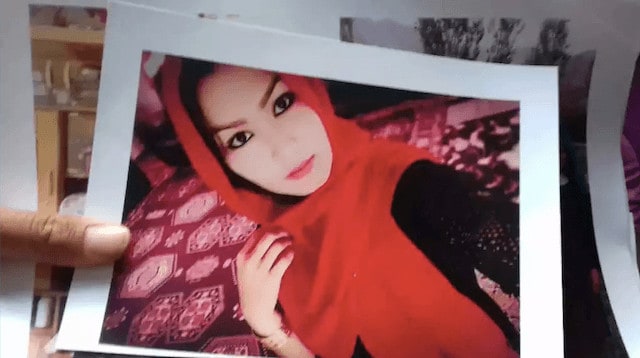Photo credit: The Age
A young Afghan mother who died after suffering severe burns in a backyard in Melbourne in February may have actually entered Australia as a child bride.
Police initially believed that the Hazara woman was 22-year-old Sadif Karimi when she died, but it has come to light that her real name was Ziba Haji Zada. Her husband and his family have told police that she set herself alight, but authorities are investigating if someone else is to blame.
Related Campaign: Join the fight against forced child marriage.
Ziba’s aunt, Parwana Khaliqi, explained that the girl had been married when she was just 14 to a man she had never met in Afghanistan. However, with the help of a fake passport, her name was changed to “Sadif Karimi” and her age was pushed up to 18.
Under Australian law prospective marriage and de facto partner visa applicants must be at least 18 years of age when an application is made.
“She was too young so they faked her name and changed her date of birth and everything,” said Khaliqi.
“By the time she came to Australia she’d been stripped completely of her identity. She was no longer Ziba.”
The Age reports that Ziba reached out for help in the months before her death:
The Australian Government criminalised forced marriage under the Commonwealth Criminal Code in 2013. Since then, the Australian Federal Police have received more than 230 referrals relating to people in, or at risk of, forced marriage including 49 between July 1, 2017, and April 30 this year.
Good Shepherd Australia New Zealand’s forced marriage specialist Laura Vidal said Ziba’s story reflected the harrowing situation of many migrant women.
Ms Vidal said there was often a “grey area” between forced and arranged marriage, which many women fell into.
She said women who migrate as wives from overseas were often subjected to horrific violence, forced labour and sexual servitude and needed long-term support to overcome the trauma.
Ziba had sought help from family violence crisis service Safe Steps in the months leading up to her death.
But sources close to the organisation allege the service did not adequately follow up her case, including failing to make obligatory phone calls to her.
Vidal noted that tightening immigration laws was not the answer to cases like these, saying “The fact remains, [women] will likely be safer in Australia than overseas and more likely able to get access to services and support.”
The Department of Home Affairs says it has little control over the passports of foreign countries, even if they were made using fraudulent data.
“All identity documentation provided with visa applications is thoroughly checked by the department and, where necessary, verified with relevant authorities in the issuing country,” a department spokeswoman said.
Take Action: Chip in to support our work against modern slavery.







Freedom United is interested in hearing from our community and welcomes relevant, informed comments, advice, and insights that advance the conversation around our campaigns and advocacy. We value inclusivity and respect within our community. To be approved, your comments should be civil.